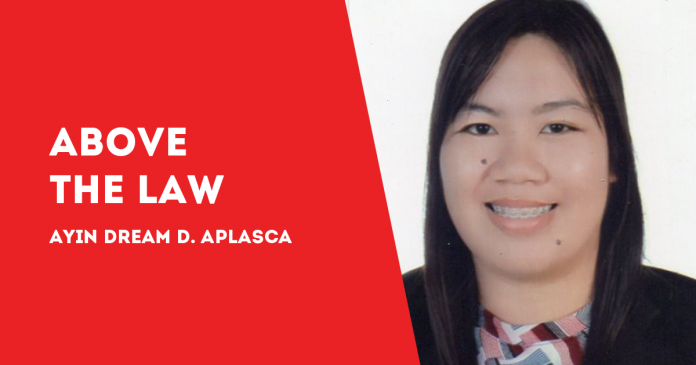
RECENTLY, we heard over the news that actor Enchong Dee surrendered to the National Bureau of Investigation (NBI) over a cyber libel complaint because of his tweet about the wedding of Cong. Claudine Bautista-Lim.
The congresswoman is a representative for PUV drivers party-list Drivers United for Mass Progress and Equal Rights (DUMPER). She was back-lashed by the public over her lavish wedding held at a luxury resort.
The public expressed their anger because of the extravagant wedding in the middle of the pandemic and that she is representing a marginalized sector in Congress. Among those who reacted was actor Dee who tweeted that “the money for commuters and drivers went to her wedding.”
A complaint was filed against the actor at the Office of the Provincial Prosecutor in Davao Occidental stating that the tweet posted by the actor was “defamatory” and “malicious.” The prosecutors said the actor alleged that the congresswoman committed a crime of malversation of public funds. They said that it is as if the congresswoman was a thief and the said allegations “cannot also be considered within the purview of qualified privileged communications.”
The crime charged against the actor is for violation of the Cybercrime Prevention Act of 2012. It’s good to have knowledge of this law to avoid cyber libel and to help us to be more responsible on what we post online.
This law was introduced to combat and prevent cybercrime. There are different types of cybercrimes under this law. These are: illegal access; illegal interception; data interference; system interference; misuse of devices; cybersquatting; computer-related forgery; computer-related fraud; computer-related identity theft; cybersex; child pornography; libel; aiding or abetting in the commission of cybercrime; attempt in the commission of cybercrime; and corporate liability.
One of the crimes mentioned is libel. According to Section 4 (c)(4) of the law, libel is “the unlawful or prohibited acts of libel as defined in Art. 355 of the Revised Penal Code, as amended, committed through a computer system or any other similar means which may be devised in the future.”
The elements of cyber libel under RA 10175 and in relation to Articles 353 and 355 of the Revised Penal Code are the following:
(a) there must be an imputation of a crime, or of a vice or defect, real or imaginary, or any act, omission, condition, status, or circumstance;
(b) the imputation must be made publicly, which requires that at least one other person must have seen the libelous post, in addition to the author and the person defamed or alluded to in the post;
(c) the imputation must be malicious, which means that the author of the libelous post made such post with knowledge that it was false, or with reckless disregard as to the truth or falsity thereof;
(d) the imputation must be directed at a natural or juridical person, or one who is dead, which requires that the post must identify the person defamed, or at the very least, the person defamed is identifiable by a third person;
(e) the imputation must tend to cause the dishonor, discredit or contempt of the person defamed; and
(f) the imputation was done through the use of a computer system or any other similar means which may be devised in the future.
In the crime of cyber libel, there are two subjects who may be liable for the crime: The author of the libelous post, which includes the person who shall publish, exhibit or cause the publication of the libelous post; and the editor or business manager, in case the libelous post is contained in a book, pamphlet, newspaper, magazine or serial publication.
The National Bureau of Investigation (NBI) and the Philippine National Police (PNP) are responsible for enforcing the provisions of the law. They are mandated to organize a cybercrime unit or center manned by special investigators to exclusively handle cases involving violations of the law.
Considering the seriousness of this matter, let us be more mindful on what we post online that could affect the reputation of others. We should be careful when we express our thoughts and opinions especially when it involves or refers to someone. This is to avoid not only misunderstandings but also unwanted legal battle.
Spread love, not hate./PN

